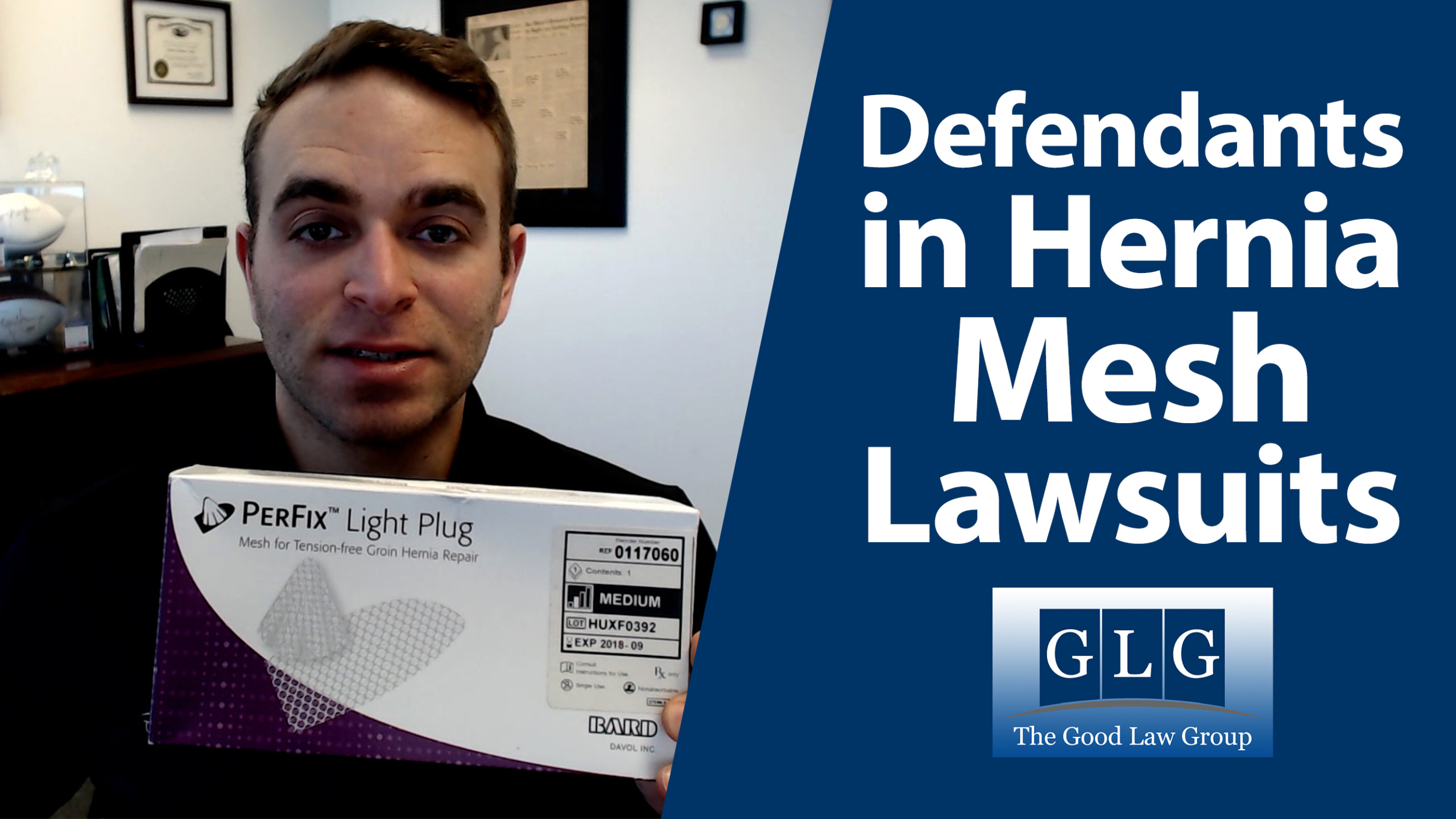More than one million Americans undergo hernia surgery each year, and close to 90% of patients receive some type of hernia mesh product. Made from a variety of materials, including Gore-Tex, polypropylene, and animal-derived tissue, hernia mesh reinforces the damaged tissue and helps minimize the risk of recurrence.
Unfortunately, hernia mesh products come with a fair share of risk. Whether due to a design defect or physician error, an estimated one-third of hernia mesh surgery patients experience chronic pain or other long-term complications. As a result, many hernia mesh products have been recalled, while others are currently under investigation.
If you’ve been injured following hernia mesh surgery or suffer long-term complications, you may be considering filing a hernia mesh lawsuit. This hernia mesh claims FAQ answers some common questions people have about filing a hernia mesh injury claim.
What are the potential complications from hernia mesh injury?
Pain and other mild issues are common after any surgery. But if you experience pain that lasts longer than a few months or you get an infection that isn’t resolved with antibiotics, there is a good chance a defective hernia mesh product or physician error is to blame.
Hernia mesh can shrink, migrate, or wear thin, which can cause chronic pain, other medical conditions, or even require follow-up surgery to repair the mesh and the resulting damage. These complications may include:
- Adhesion (scar tissue forms around the mesh implant, attaching it to surrounding organs or tissue);
- Abdominal pain;
- Bowel obstruction;
- Perforation of organs or tissue;
- Pain in the groin and/or testicles, or;
- Hernia recurrence.
What are the grounds for filing a hernia mesh injury claim?
Hernia mesh injury claims first require that you experience chronic pain or other medical issues as a result of the hernia mesh. After that, hernia mesh claims typically fall under one of the following four categories:
- Design defect. In these cases, a design flaw makes the hernia mesh defective. In these cases, manufacturers are held to a standard of strict liability. That means you only have to prove that the hernia mesh was defective and that the defect caused your injury.
- Manufacturing defect. In these hernia mesh claims, the hernia mesh product itself isn’t defective. Instead, a problem occurred when the hernia mesh was being made. These cases are brought under a theory of negligence. That means the manufacturer had a duty to create a product that was safe, and the defective product breached that duty.
- Failure to warn. Medical products must contain warnings about potential side effects so physicians and patients can make an informed decision about whether to use it. If the warnings are incomplete or misleading, the individual responsible for marketing the product or preparing the warnings can be liable for your injuries.
- Medical malpractice. Medical malpractice means that your physician made a surgical error that caused your injuries. This could be a failure to warn of possible side effects, inserting the hernia mesh product incorrectly, using a mesh product not suitable for your specific needs, or some other surgical error.
Who is the defendant in a hernia mesh injury claim?
The defendant is the person being sued. In a hernia mesh injury claim, there can be one or more defendants, depending on what legal theory you pursue.
Typically, hernia mesh lawsuits are filed against the company that designed and/or manufactured the hernia mesh. Manufacturers could include one or more companies, for example, if one company manufactures the materials used in the hernia mesh and another assembles the final product.
But designers and manufacturers aren’t the only potential defendants in a hernia mesh lawsuit. A marketing agency that failed to adequately address the potential side effects in the marketing materials may be liable if you can prove that you wouldn’t have used the product if you’d known otherwise. The company that distributes or transports the hernia mesh could also be liable if their actions damaged the product during delivery.
If your physician committed medical malpractice, the physician, the surgical staff, and/or the hospital where the surgery was performed could also be liable.
What compensation can I receive for my hernia mesh injury claim?
Awards from prior hernia mesh injury verdicts and settlements show that the typical plaintiff can expect to receive between $500,000 to $1 million in compensation. Note, however, that this is an average; several factors, including the severity of your injuries, the defendant (or defendants), and whether the award is from a jury trial or out-of-court settlement, can all influence the final compensation amount.
There are three forms of compensation hernia mesh injury plaintiffs may be entitled to recover:
- Economic damages. Economic losses have an actual, provable dollar amount attached to them. For hernia mesh claims, these losses may include:
- Medical bills not covered by health insurance;
- Past, present, and future lost wages, and;
- Future lost earning capacity.
- Non-economic damages. These are losses that do not have a concrete dollar amount attached. Unlike medical bills and lost wages, non-economic losses are subjective, which means they are proven not with bills or salary information, but testimony from the plaintiff and their family members about the effects of the hernia mesh injury. Non-economic damages in hernia mesh injury claims may include:
- Pain and suffering;
- Loss of consortium;
- Loss of enjoyment of life;
- Mental anguish, or;
- Permanent disabilities, impairment, or disfigurement.
- Punitive damages. Unlike economic and non-economic damages, which compensate patients for their losses (and are therefore called “compensatory damages”), punitive damages are designed to punish the defendant for their wrongdoing. Punitive damages are typically larger than compensatory damages and vary widely based on the defendant’s culpability (i.e., how responsible they are for your injuries). Punitive damages are only awarded following a jury trial; they are not included as part of a settlement.
To learn more about the damages you may receive from a hernia mesh lawsuit, watch this short video.
The hernia mesh attorneys at The Good Law Group leverage more than 30 years’ experience to help plaintiffs injured following hernia mesh surgery get the compensation they deserve. If you underwent hernia mesh surgery and are living with chronic pain or long-term complications, call our office at 800-419-7606 to schedule a free hernia mesh case evaluation.









